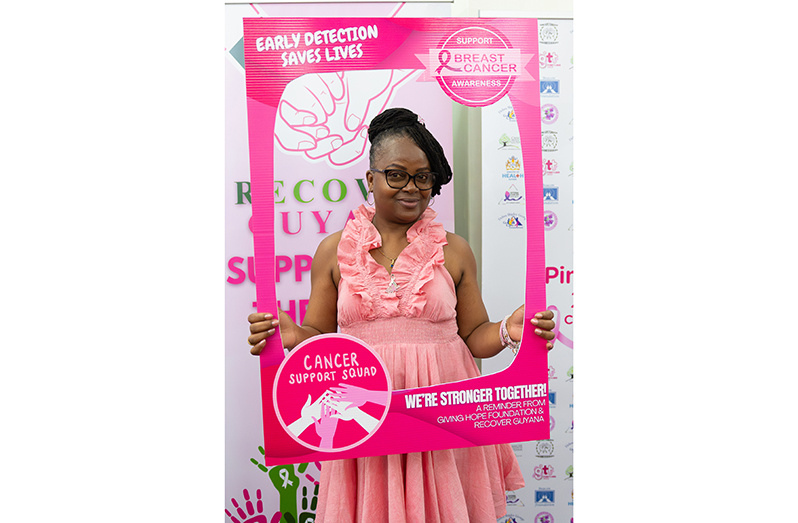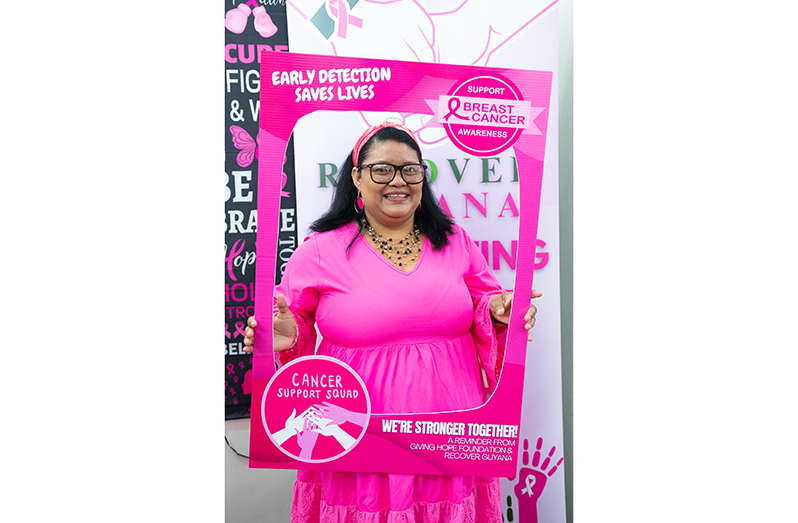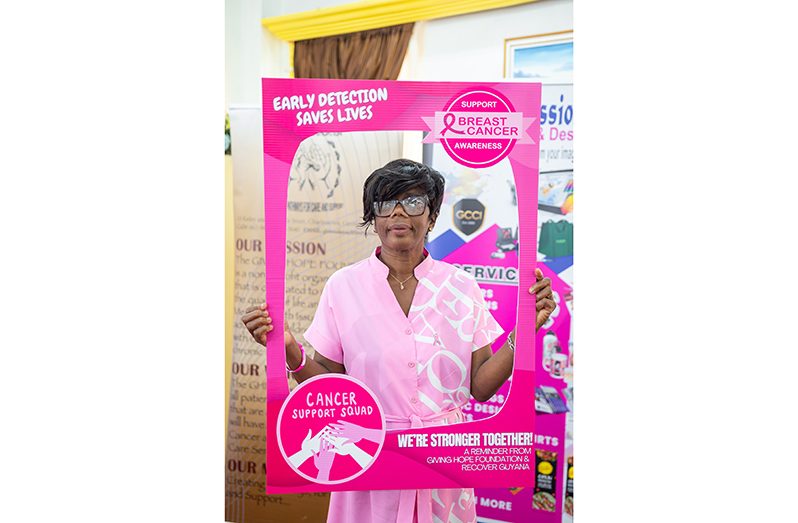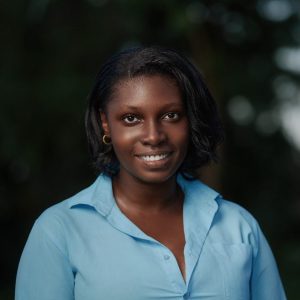Almost eight years ago, Marcel Borne felt a lump in her breast one evening after a shower. It wasn’t painful and was perhaps something that some may have ignored, but Marcel didn’t. She went to a series of hospitals and was eventually diagnosed with stage two breast cancer.
Marcel and many women like her are grappling with the battle against cancer and the constant fear that remains even in the stages of recovery. People like Marcel, Belinda Darkes and Trudy Cummmings are prime examples of what not only what fighting Cancer looks like, but winning that fight as well.
Cancer was nothing new to Marcel. She had lost her mother to cancer several years prior. This led to her being very conscious of any changes she noticed in her body. “Self-examination means a lot. One evening after I came out of the bath, I couldn’t really say what spoke to me to examine my breast, but I followed that little voice, and I did it,” Marcel stated.
“I observed a lump in the left breast. It wasn’t painful, but I said it wasn’t supposed to be here,” She shared. This was the beginning of a series of tests, treatments and chemotherapy cycles that Marcel called a nightmare. “It was hard when I was first diagnosed and I cried but I told myself this is not the end of it.” And she was right. Marcel went in to have surgery for her cancer.

“I did the surgery and I had eight cycles of chemotherapy. It wasn’t easy at all,” she stated. “I would vomit, all my hair dropped out. I prayed A lot. I got full support from my pastors and church members.” This support, Marcel stated, went a long way in her recovery. Today, she has recovered from cancer, although there are still minor treatments she does for side effects post-surgery. But Marcel urges women everywhere to practice self-examination and to never give up.
Belinda Darkes received her diagnosis three years ago. “In 2020, when I went to my doctor, she felt something was different and she told me to get an ultrasound. So I went to check, and he said, ‘this doesn’t look right.’” Belinda said. She further stated, “I had to do a biopsy and run all these tests. And it came back for cancer.” Belinda was then faced with a difficult decision. And she made a choice that not many women would have.
“We decided to go to surgery and we decided to remove one side breast, but I just decided to remove both. So I wouldn’t ever have to study about this again,” Belinda said. “I started chemo. I just did four sessions. Chemo started smooth but then all my hair dropped off.” She handled it well, stating further that losing her hair was difficult, yes. But if it meant that she lived, it was necessary and worth it.
“The first and second rounds of chemo were good, but by the third, I started to get all these reactions and allergies,” she stated. Despite this, she finished chemo. “Then I did the last set of chemotherapy and from then on I just started eating healthy. And keeping up with my regular checks and I am at this point here.” Today, Belinda leads a healthy life. And has what she considers very little side effects or remaining problems.
She stated that, “The most of the side effects is that because of the lymph nodes that were removed, I can’t really use my hand at will.” Belinda’s advice to other women struggling as she did is that beating cancer is possible. And that they should do it with a positive attitude and a smile. She stated that, “You have just got to manage yourself as best you can, eat well and don’t forget to be happy. Keep smiling.”

The month of October is dedicated to raising awareness, encouraging check-ups and celebrating cancer survivors. The community of people from NGOs like Giving Hope Foundation and Recover Guyana welcome anyone going through the cancer journey.
Cancer doesn’t have a face, nor is one type of cancer different from the other. Trudy Cummings was diagnosed with cervical cancer almost 10 years ago. “I was diagnosed with cervical cancer in 2013. It all started with menstrual problems and unbalanced hormones. And it has been going on for a pretty long time,” Trudy stated.
Trudy explained that it was difficult to get a conclusive diagnosis at first. She said, “I visited my doctor and at first I was told it was just unbalanced hormones and I was treated for that. But it continued. I ended up seeing a specialist. I was sent to do the test, and then I found out I have cervical cancer.”
Trudy was, however, lucky as her cancer was still in its earliest stages. “After I spoke to different doctors, it wasn’t that far gone that I couldn’t do surgery. So I had to make a decision to either do the surgery or continue with treatment.” And Trudy had the surgery. “I did the surgery and every year I go and do the checkups. And the journey was really, really stressful.” As stressful as it was, Trudy is still very thankful to have noticed and taken action when she had.
Today, Trudy still has instances when her health is not the best. But she is recovering, saying, “I can tell you yes, I have my days when I am not feeling that well, and I have it in the back of my head that maybe it’s coming back.” Despite the fear that the cancer may reoccur, Trudy and so many other women like her are working towards a better, healthier life, leaving cancer in the past.
There is, however, one sentiment that is echoed by most cancer survivors. And that is that, the earlier cancer is diagnosed, the earlier it can be treated. As Trudy encourages, “My advice is early detection saves lives.”



.jpg)








